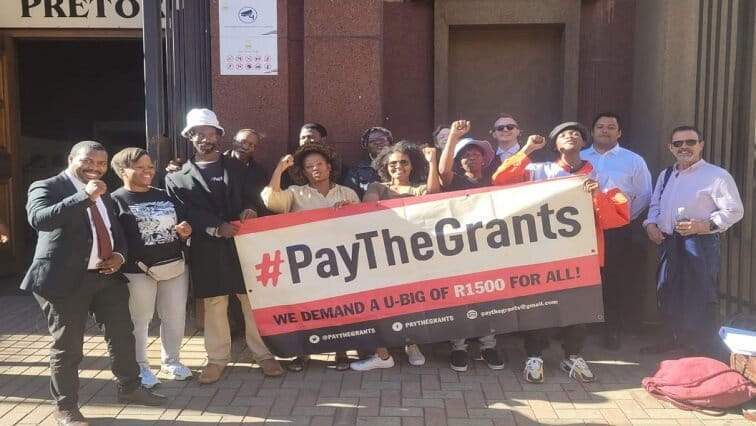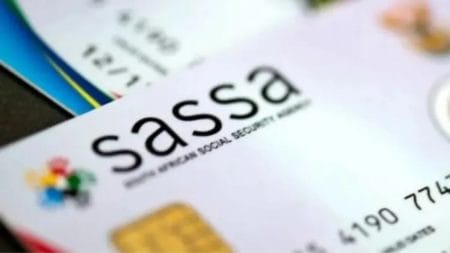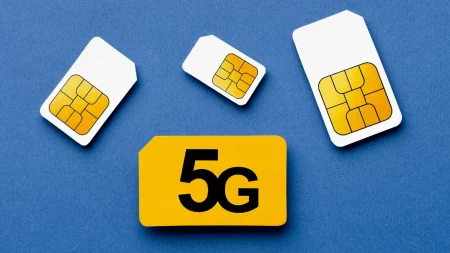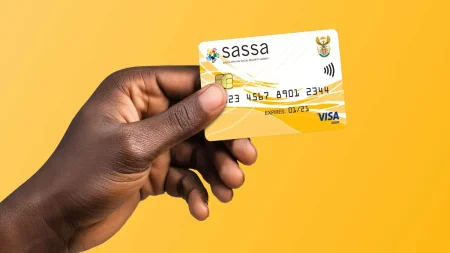South Africa’s Social Relief of Distress (SRD) grant has long been a lifeline for millions of vulnerable citizens. However, issues surrounding the restrictive criteria for grant eligibility have made it difficult for many to access this essential support. Recent developments indicate change may be on the horizon, thanks to the persistent efforts of the #PayTheGrants Advocacy Group.
The High Court in Pretoria recently ruled that the application criteria for the SRD grant are unconstitutional. This groundbreaking decision focuses on addressing the challenges posed by the restrictive eligibility rules, the problematic electronic application system, and the unreasonably low income threshold.
The Role of the #PayTheGrants Advocacy Group
The #PayTheGrants Advocacy Group has been at the forefront of the fight for a fairer, more inclusive SRD grant system. As an advocacy organization committed to social justice, the group has consistently highlighted the government’s responsibility to ensure that the most vulnerable citizens receive the support they need. Their efforts have culminated in a historic court victory, offering hope to millions of South Africans.
Elizabeth Raiters, Deputy Chairperson of the #PayTheGrants Advocacy Group, expressed optimism about the ruling. She emphasized the need to revisit and restructure the SRD grant system to ensure it meets the needs of the population.
“The government is aware that so many people actually need this grant and South Africa does have the money to pay these beneficiaries. I don’t think that you can introduce a grant and not look at the amount of beneficiaries that need to access this grant,” Raiters stated.
Key Issues Highlighted by #PayTheGrants Advocacy Group
The judgment in favor of the #PayTheGrants Advocacy Group brings much-needed attention to several critical issues with the current SRD grant system:
- Restrictive Eligibility Criteria:
Under the existing system, applicants with a monthly income exceeding R350, even by a small margin, were disqualified. This threshold is unreasonably low, given the high cost of living in South Africa. - Challenges of the Electronic Application Platform:
The electronic system used by SASSA has been criticized for being inaccessible to many potential beneficiaries. For those without smartphones, internet access, or digital literacy, applying for the SRD grant has proven nearly impossible. - Unrealistic Income Threshold:
The #PayTheGrants Advocacy Group has long argued that the income threshold of R350 per month is insufficient and excludes many individuals who live in poverty but exceed this arbitrary limit.
Government Responsibility and Financial Capacity
One of the #PayTheGrants Advocacy Group’s key arguments is that South Africa has the financial resources to support all eligible SRD grant beneficiaries. The group asserts that the government’s current budget can accommodate the necessary changes, provided there is proper prioritization and management of funds.
Elizabeth Raiters pointed out that introducing a grant without assessing the actual number of people in need is a significant oversight. She emphasized that the government’s responsibility extends beyond announcing relief measures—it must ensure these measures are effective and accessible.
The Way Forward: Recommendations from the #PayTheGrants Advocacy Group
The High Court’s ruling presents an opportunity for the government to address systemic flaws in the SRD grant system. The #PayTheGrants Advocacy Group has proposed several actionable steps to create a more equitable and efficient process:
- Increase the Income Threshold:
Raising the threshold to a realistic level would ensure that more South Africans in need qualify for the grant. - Improve Accessibility:
Simplifying the application process and providing alternative methods for those without internet access or digital literacy is critical. - Reassess the Grant’s Value:
Increasing the monthly amount of the SRD grant to reflect current economic realities would help beneficiaries cover basic living expenses. - Transparent Communication:
SASSA must provide clear, consistent updates about the application process and eligibility requirements to reduce confusion and build trust. - Collaboration with Stakeholders:
The #PayTheGrants Advocacy Group has called for close collaboration between the government, civil society, and other stakeholders to ensure the successful implementation of the court’s recommendations.
Why This Judgment Matters
The High Court’s decision marks a significant victory for the #PayTheGrants Advocacy Group and millions of South Africans who depend on the SRD grant. For beneficiaries, the grant is often the difference between having food on the table and going hungry.
South Africa’s high levels of unemployment and income inequality make social grants essential for survival. The #PayTheGrants Advocacy Group argues that expanding access to the SRD grant and increasing its value could alleviate poverty and improve the quality of life for millions of people.
Learn More: Court Rules SASSA’s R370 SRD Grant Regulations Unconstitutional and Invalid
Hope for the Future
The court’s judgment is a testament to the power of advocacy and collective action. The #PayTheGrants Advocacy Group has shown that holding the government accountable can lead to meaningful change. Their work serves as a reminder that citizens have the right to demand fair treatment and support from their leaders.
Elizabeth Raiters expressed hope that the Department of Social Development and SASSA will implement the necessary changes. “We need to go back to the drawing board with SASSA and Social Development, and actually fix all these errors that have been made in this grant,” she said.
Source: Govt does have money to pay SRD grant beneficiaries: #PayTheGrants










